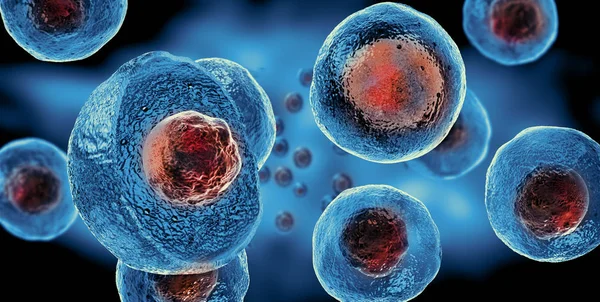
Is Type 1 Diabetes Curable? Exploring Current Research and Future Possibilities


Type 1 diabetes remains a significant health challenge, impacting millions worldwide. While there is currently no definitive cure, advancements in research and therapy are paving the way for promising treatment options. Recent developments suggest that effective solutions may soon emerge, offering hope for individuals living with this condition.
Innovative therapies, including cellular treatments and stem cell transplants, are showing potential in reversing the effects of type 1 diabetes. Early clinical trials have demonstrated encouraging results, leading to a renewed sense of optimism in the medical community. As researchers continue exploring these avenues, the possibility of a future where type 1 diabetes can be managed or even cured is becoming more tangible.
The journey toward discovering a cure is ongoing, filled with challenges and breakthroughs. As this field evolves, it is essential to stay informed about the latest findings and what they mean for those affected by type 1 diabetes. Understanding the current landscape can empower individuals and families to navigate their options in search of better health outcomes. Let's explore is type 1 diabetes curable?
Type 1 diabetes is an autoimmune condition where the immune system attacks insulin-producing cells. This section will explore how this process occurs and the key symptoms associated with early diagnosis.
In type 1 diabetes, the immune system mistakenly identifies the beta cells in the pancreas as threats. These cells are essential for producing insulin, a hormone that regulates blood glucose levels.
When these cells are destroyed, the pancreas can no longer produce sufficient insulin. Without insulin, the body cannot convert glucose from food into usable energy. As a result, individuals with type 1 diabetes often need to manage their condition through insulin injections or infusions.

The destruction of beta cells occurs often in childhood or adolescence, but individuals can develop the condition at any age. Understanding this autoimmune response provides insight into the daily management requirements faced by those with type 1 diabetes.
Diagnosis of type 1 diabetes typically involves blood tests that measure glucose levels. Common early symptoms include excessive thirst, frequent urination, and unexplained weight loss.
Another critical sign is diabetic ketoacidosis (DKA), a severe condition that can develop if the disease is left untreated. Symptoms of DKA may include fruity-smelling breath, nausea, and confusion.
Recognizing these symptoms early is essential for prompt treatment. The complexity of managing type 1 diabetes can pose significant challenges, making it crucial to understand its nature from the onset.
Effectively managing type 1 diabetes is crucial for individuals to lead healthy lives. This involves a combination of insulin therapy, lifestyle adjustments, and ongoing research into new treatment options.
Insulin therapy is the cornerstone of managing type 1 diabetes. Individuals with this condition require insulin injections or use of an insulin pump to regulate blood glucose levels.
Common methods include:
Frequent blood glucose monitoring is essential. This helps individuals determine the appropriate insulin dose and maintain blood sugar levels close to normal range, minimizing complications.
Adopting a healthy lifestyle is vital for managing type 1 diabetes. This includes balanced nutrition, exercise, and weight management.
Key dietary considerations:
Regular physical activity can improve insulin sensitivity and cardiovascular health. A consistent routine aids in stabilizing blood sugar levels, allowing individuals to achieve a more typical lifestyle.
Research initiatives continue exploring novel treaments or cure for type 1 diabetes. Emerging therapies may offer hope for improved management and potential cures.
Current focuses include:
Understanding these advancements is important, as they could significantly alter the future management landscape. With diligent care and ongoing support, individuals can maintain a normal life despite living with type 1 diabetes.
Managing type 1 diabetes involves a structured daily routine, attention to long-term health, and access to support systems. Individuals can lead fulfilling lives by adopting effective management strategies and utilizing available resources.
For those living with type 1 diabetes, daily life requires careful planning and adherence to routines. Blood glucose levels should be monitored regularly, often several times a day.

Individuals typically need to inject insulin or use an insulin pump to regulate their blood sugar. Diet plays a crucial role; a balanced intake of carbohydrates, proteins, and fats is essential.
Creating a meal schedule helps in managing insulin doses effectively. Regular physical activity is encouraged, promoting both physical and mental well-being. Consistency in these routines enables individuals to maintain their health and enjoy regular activities.
Long-term health considerations are critical for individuals with type 1 diabetes. Poor management can lead to complications such as cardiovascular disease, neuropathy, and kidney damage.
Daily management strategies include:
Regular check-ups with healthcare professionals are vital. These appointments can help assess overall health and detect any potential complications early. Education about diabetes management empowers individuals to make informed decisions for their health.
Support systems greatly enhance the quality of life for individuals with type 1 diabetes. Family, friends, and support groups can provide emotional support and practical assistance.
Resources such as diabetes education programs offer vital information about living with the condition. Online forums and community groups create spaces for sharing experiences and advice.
Healthcare providers can guide individuals in managing their diabetes effectively. Accessing reliable information and connecting with others facing similar challenges fosters a supportive environment.
Research into type 1 diabetes continues to evolve, focusing on several promising avenues. There is ongoing exploration of immune therapies that target the autoimmune response responsible for destroying insulin-producing beta cells. These therapies aim to protect remaining cells and restore normal insulin function.
Cell therapy has emerged as a key area of interest. This approach seeks to replace damaged insulin-producing cells, potentially restoring the body’s ability to regulate blood sugar without external insulin. While early attempts at pancreatic cell transplants have faced challenges, improvements in techniques and outcomes are anticipated.
Innovations in genetic research are also significant. Identifying genetic markers may lead to more tailored interventions in type 1 diabetes treatment, enhancing the understanding of individual responses to therapies. This means stem cell therapy can treat type1 diabetes.
Recent advancements include the FDA approval of teplizumab, which has shown promise in delaying the onset of type 1 diabetes in at-risk individuals. This breakthrough reinforces the potential for early intervention strategies.
Moreover, clinical trials continue to assess various immunomodulatory agents, with hopes of achieving long-term remission and possibly a new diabetes cure. While a permanent cure remains elusive, ongoing research offers hope for more effective treatments and the possibility of significant advancements in patient care.
Shiney Wellness stands out as the no. 1 stem cell therapy center, committed to offering innovative treatments that harness the body's natural healing potential. With a team of highly skilled medical professionals, Shiney Wellness provides personalized care in a state-of-the-art facility. They specialize in regenerative therapies designed to alleviate pain, support recovery, and improve quality of life. By using cutting-edge technology and adhering to the highest standards of safety, Shiney Wellness ensures optimal results for patients seeking alternative solutions for chronic conditions. Trust Shiney Wellness as your partner in achieving enhanced wellness through stem cell therapy.

